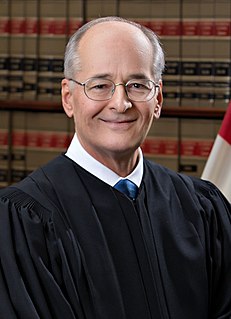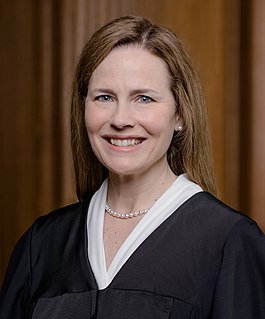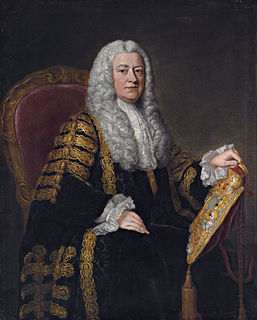A Quote by Benjamin Whichcote
Related Quotes
The Gospel is temporary, but the law is eternal and is restored precisely through the Gospel. Freedom from the law consists, then, not in the fact that the Christian has nothing more to do with the law, but lies in the fact that the law demands nothing more from the Christian as a condition of salvation. The law can no longer judge and condemn him. Instead he delights in the law of God according to the inner man and yearns for it day and night.
People must be confident that a judge's decisions are determined by the law and only the law. He must be faithful to the Constitution and statutes passed by Congress. Fidelity to the Constitution and the law has been the cornerstone of my life and the hallmark of the kind of judge I have tried to be.
There has been no clearer principle of English or American constitutional law than that, in criminal cases, it is not only the power and duty of juries to judge what are the facts, what is the law, and what is the moral intent of the accused; but that it is also their power, and their primary and paramount duty, to judge the justice of the law, and to hold all laws invalid, that are, in their opinion, unjust or oppressive, and find all persons guiltless in violating, or resisting the execution of, such laws.
For every crime that comes before him, a judge is required to complete a perfect syllogism in which the major premise must be the general law; the minor, the action that conforms or does not conform to the law; and the conclusion, acquittal or punishment. If the judge were constrained, or if he desired to frame even a single additional syllogism, the door would thereby be opened to uncertainty.
Nobody has told Trump that he can't defund sanctuary cities, because the judge William Orrick did not rule that law unconstitutional. This was a pure exercise in nothing more but a refusal to acknowledge the authority vested in Donald Trump as president. This was nothing more than yet another judge essentially saying, "You don't have the power to do anything because I don't acknowledge you as president and I don't acknowledge your oath of office because you're not sane and you're not of sound mind to actually tell the truth when you take the oath of office."
Fury said to a mousethat he met in the houselet us both go to law; I will prosecute youlet there be no denial; come, we must have a trialfor really, this morning, I've nothing to dosuch a trial, dear sir, said the mouse to the curwithout jury or judge would be wasting our breathI'll be judge, I'll be jurysaid cunning old furyI'll try the whole cause and condemn youto death
Courts are the mere instruments of the law, and can will nothing. When they are said to exercise a discretion, it is a mere legal discretion, a discretion to be exercised in discerning the course prescribed by law; and, when that is discerned, it is the duty of the Court to follow it. Judicial power is never exericised for the purpose of giving effect to the will of the Judge; always for the purpose of giving effect to the will of the Legislature; or, in other words, to the will of the law.







































